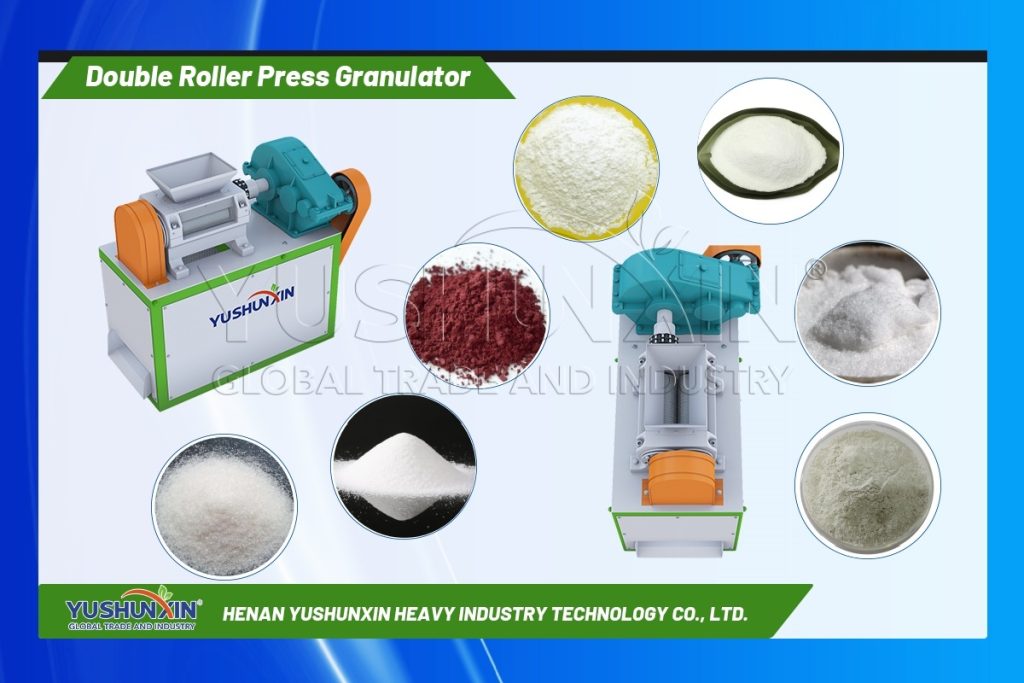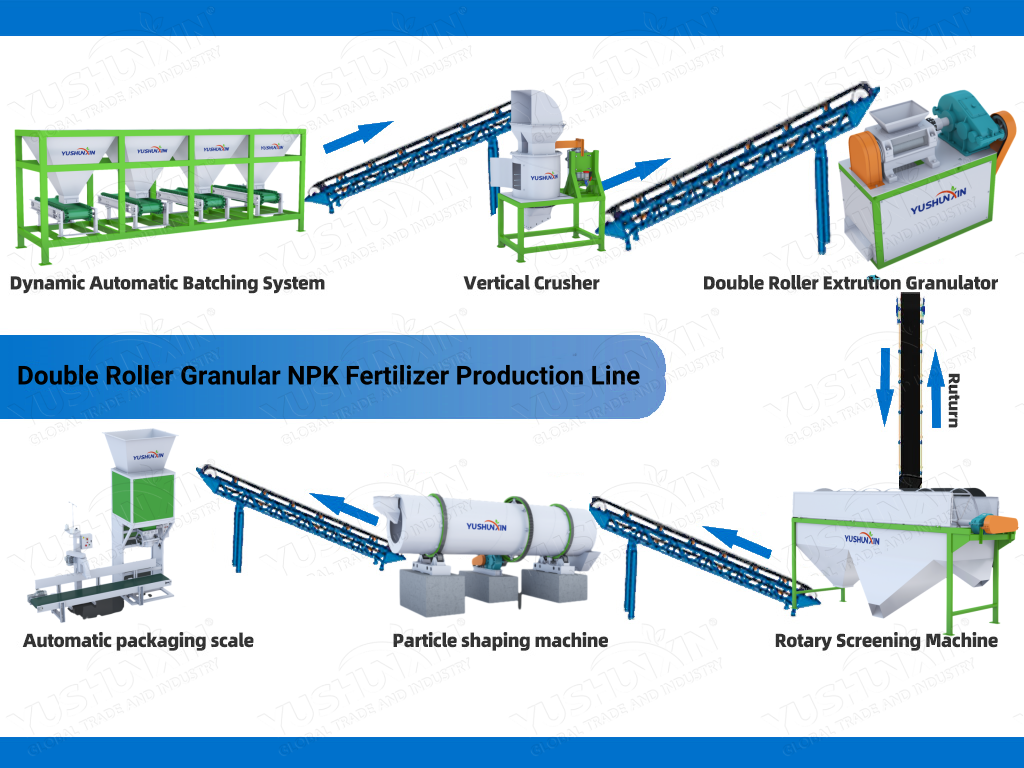In the world of fertilizer production, various methods and technologies are employed to create efficient and effective NPK (Nitrogen, Phosphorus, Potassium) pellets. Among these, the double roller extrusion process stands out for its unique advantages. How do NPK pellets produced by this method compare to those created using other procedures? This blog will delve into the specifics of NPK pellet production, focusing on the benefits of different methods, particularly emphasizing on the 30 TPH granulation techniques.
What Raw Materials Suit Different Fertilizer Production Methods?
Fertilizer production requires specific raw materials, each serving particular industry needs. Common raw materials include ammonium nitrate, urea, potassium chloride, and phosphate rock. For example, ammonium nitrate offers high nitrogen content, beneficial for the agricultural sector that demands rapid plant growth. Urea serves industries that require slow-release nitrogen fertilizers. Potassium chloride is vital for crops that need improved drought resistance and strength, whereas phosphate rock supports soil fertility enhancement. Selecting appropriate raw materials is crucial as it aligns with the unique requirements of various sectors, facilitating efficient production through granulation, pellet making, and particle formation.

Which Machinery Features Enhance Fertilizer Granulation Techniques?
Different methods of fertilizer granulation utilize specific machinery, each with distinct features. The double roller extrusion granulator is central to the 30 TPH NPK fertilizer production process and offers significant advantages. This equipment excels in dry granulation, producing uniform granules without the need for additional moisture. Additional machinery like the loader type feeder, crain crusher, and horizontal mixer contribute to a streamlined production line by efficiently managing raw material feeding, crushing, and blending. The rotary screening machine ensures size consistency in the granules, while the automatic packaging scale facilitates precise product measurement. Belt conveyors maintain smooth material flow, optimizing the production process. These features enhance the efficiency and quality of particle and pellet production, making them essential in the manufacturing setup.
How Does Roller Extrusion Compare to Other Granulation Processes?
When comparing roller extrusion to other granulation processes, such as drum granulation or fluidized bed granulation, distinct differences emerge. Roller extrusion, especially in the context of 30 TPH NPK fertilizer production, offers superior energy efficiency and cost-effectiveness. It uses a dry process, eliminating the need for additional drying equipment, which significantly reduces energy consumption. This method ensures high-density pellets, enhancing transport and storage efficiency. In contrast, drum granulation requires moisture and heat, leading to higher operational costs and potential environmental concerns. Fluidized bed granulation, while useful for specific applications, demands complex machinery and higher maintenance. The roller extrusion process, therefore, presents a more sustainable and economically viable method for large-scale fertilizer particle manufacturing.

Why Choose a Professional Fertilizer Equipment Manufacturer?
Selecting the right equipment is crucial for optimizing the fertilizer production process. A professional manufacturer like Yushunxin offers expertise and innovation in designing machinery tailored to your specific needs. Their equipment, including the double roller extrusion granulator, is engineered to enhance the efficiency of 30 TPH NPK production lines. Yushunxin's technology ensures robust performance, durability, and ease of maintenance, providing businesses with a reliable partner in the fertilizer manufacturing industry. By choosing a reputable supplier, companies benefit from cutting-edge technology and comprehensive support, ensuring seamless pellet, granule, and particle preparation.
Conclusion
In summary, understanding the intricacies of NPK pellet production methods allows industries to make informed decisions regarding raw materials, machinery, and processes. By leveraging the benefits of the roller extrusion technique, businesses can achieve more efficient and cost-effective fertilizer manufacturing, meeting the demands of various sectors effectively. You can visit: https://www.extruder-granulator.com/30-t-h-roller-press-granulation-production-line/